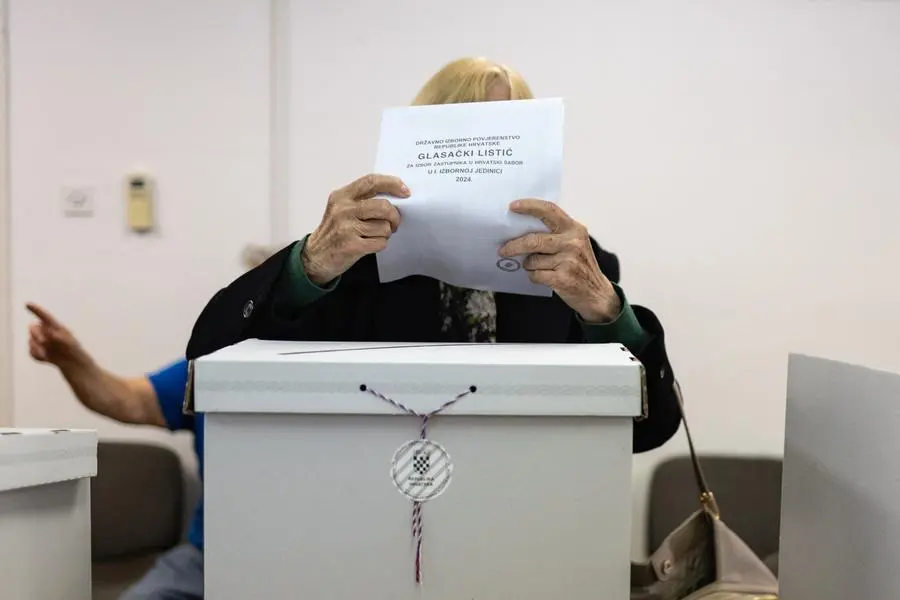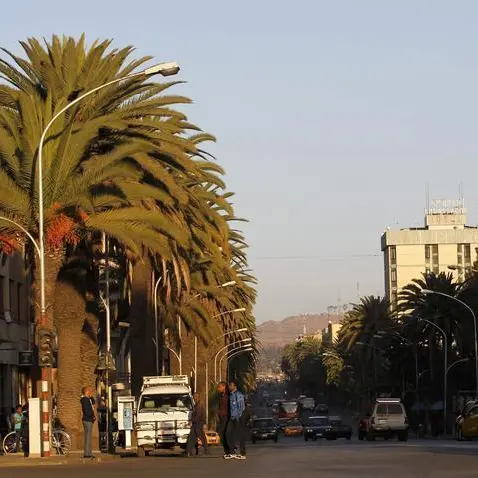PHOTO
Croats cast their votes on Wednesday in a tight parliamentary vote that will test the popularity of Prime Minister Andrej Plenkovic and his ruling conservative HDZ party, accused by opponents of corruption and nepotism.
The HDZ (Croatian Democratic Union) hopes to ride the long-term support it has for overseeing Croatia's accession to the European Union, the introduction of the euro and a boom in tourists visiting the country's Adriatic coastline.
Polls show HDZ winning the most seats, but some Croats have grown tired of the party, which has dominated politics since Croatia's independence from a crumbling federal Yugoslavia in 1991.
Analysts say its many graft scandals, including Plenkovic's appointment of a state attorney known for links with people involved in corrupt dealings, may dent its majority. Plenkovic denies wrongdoing.
"We would like to see politicians work in the interest of the people; that is what we elect them for. Nothing like in the past 30 years," said pensioner Biserka Kolaric, who voted in Zagreb.
The streets of the capital, Zagreb, were quiet on Wednesday as voters lined up to cast their ballots on a national holiday. The State Election Commission said turnout by 11.30 am (0930 GMT) was 24% compared to 18% in 2020.
Some 3.7 million voters will choose between more than 2,000 candidates. Exit polls are expected minutes after voting closes at 7 p.m. Official results are expected in the following days.
The most recent polls by IPSOS see HDZ taking 60 seats in the 151-seat parliament, more than any other party but down from 66 currently and not enough for an outright majority. Coalition talks are expected to follow the vote.
"I am an optimist regarding this election. The global security situation has never been more tense. We need to have responsible people running Croatia," Plenkovic said after casting his ballot.
Plenkovic's main rival is President Zoran Milanovic, who said he would resign to become the head of government if his Social Democratic Party (SDP) takes power with help from other smaller parties.
If a Social Democrat-led coalition takes over, it could change the country's stance on major issues such as support for Ukraine in its war with Russia and strain otherwise good relations with EU partners. Milanovic opposes help for Ukraine.
"I expect to talk to everyone who is against theft," Milanovic said after casting the ballot. "EU funds will be used more and there will be no theft."
The SDP coalition, called Rivers of Justice, is forecast to come second in the poll with 41 seats while the right-wing Homeland Movement and the green Mozemo party are seen coming third and fourth, with 15 and 11 seats respectively.
"Regardless of the final distribution of seats, it is likely the parliament will be more fragmented and coalition negotiations will drag on for longer," said Mario Bikarski, East and Central Europe Analyst at risk intelligence company Verisk Maplecroft.
"A minority government, either HDZ- or SDP-led, would be even more unstable and unlikely to last its full term."
(Writing by Ivana Sekularac; Editing by Edward McAllister and Christina Fincher)





















